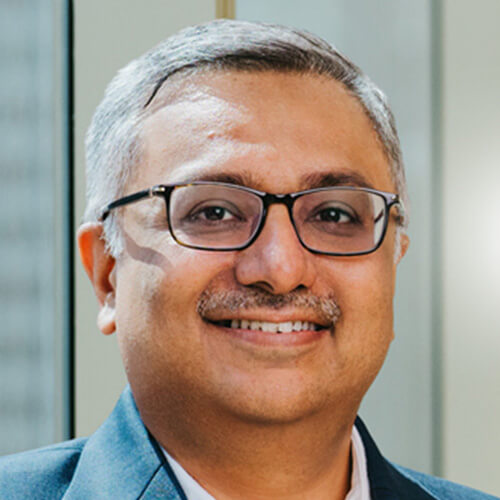SIRC: Improved performance could see insurers retain more of the risk, Munich Re’s Kotak
November 6 2025 by Mithun Varkey
Terms, conditions and structures will largely remain stable, while “attachment points might go up, which is good”, according Hitesh Kotak, Munich Re’s chief executive for Japan, India, South Korea and Southeast Asia.
The improved performance of the primary markets in the region could see insurers retain more of the risk, he said.
“They have earned good profits, so they also tend to increase their retentions, which is what we would also love to see, as our main focus is on taking the volatility which comes from the peak risks,” Kotak added. “This is also backed by discussion with our broking partners and clients.
“Overall, pricing is very different for different markets and within a market, it’s also very different for different clients. The key is really who your clients are and what their underlying portfolio looks like, and the changes that we have seen in that portfolio over time.
“If you leave out Japan and Australia, in the rest of the region, the cycle is not very pronounced, because there has always been an adequate or even excess capacity supply.”
Kotak also does not anticipate a significant growth in demand from the region.
“Growth in demand is not as strong as we would anticipate given the existing, significant penetration gap in the market. For emerging markets, you would usually expect double-digit growth, but we’re not seeing that kind of growth,” he said.
“In some markets, the demand will grow because there has been an infrastructure fillip, so primary insurers will sell more to the end customers.”
Economies with strong infrastructure investment and markets that saw nat cat activity will be the exceptions.

“Having larger players in the market is good for companies like us because it creates profitable growth opportunities in the mid-term.”
Hitesh Kotak of Munich Re
According to the global reinsurer, growth will continue to come from Indonesia, Vietnam, India, and to some extent also from Thailand, because Thailand had seen a large nat cat activity earlier in the year.
“We anticipate insurance companies to buy more earthquake capacity after this year’s earthquake event, because there is definitely a growing demand from the end customers for these covers,” Kotak said.
“Similarly, in Vietnam, where some severe flooding events happened, I also expect corrections with rates and demand moving up in this market. ”
Meanwhile, discussing the impact of consolidation on some of the Asian markets, Kotak said it is good from a reinsurance point of view. Consolidation in the industry helps insurance companies become more sophisticated and more disciplined.
“Having larger players in the market is good for companies like us because it creates profitable growth opportunities in the mid-term,” Kotak said.
“In Indonesia, potential consolidation driven by regulator’s initiative of increasing capital requirements will be positive for the overall market. Along with this, the tailwinds generated by announcement of numerous infrastructure projects is another positive.”
Structured solutions
Motivations of the clients are at the heart of Munich Re’s approach to addressing demands for protection in the lower layers of programs.
“Our view on structured solutions covers depends on the motivation of the client. If the client’s motivation is to achieve a certain objective, like helping the P&L or supporting the balance sheet, then we are open and a leading player in that discussion,” he said.
“But if the motivation is not very clear, if it is to benefit the cycle and pass on the losses to the reinsurer, then obviously, we are not interested.”
New distribution channels
On the challenges of the market, Kotak said the biggest concern he has is that the cost of acquiring the business is getting too high.
“Many insurers are competing for the same agents and, in the end, for the same customers. As a consequence, the cost of acquiring business goes up,” he added.
“I think we have to focus more on creating additional demand via new agents. This is tough, very tough but a market necessity.
“Our penetration gap in the emerging markets still has room for improvement and supporting markets through creating more distribution is the best way forward. Existing products are good enough. We just have to sell more and reach more people. I think we need more feet on the street.”
-
QBE | Elevating customer experience, humanising claims: QBE Asia’s ‘Solutions in a Box’
Vastly improving turnaround times and personalising service delivery, QBE Asia’s award-winning, end-to-end bundled claims solutions is a game-changer for the insurance industry.
-
Beazley | What does cyber protection look like from day 1 to day 600 and beyond?
Cybersecurity is no longer just an IT concern, but a governance issue that belongs on the boardroom agenda.
-
Sedgwick | Preparing for the next storm
Insurance industry needs to recalibrate, invest in innovation and strengthen systems, talent and data practices.
-
Peak Re | From climate modelling to market opportunity: Forging a new clarity on Southeast Asia’s climate risk
Southeast Asia's protection gap: a crisis of clarity, not just capital

